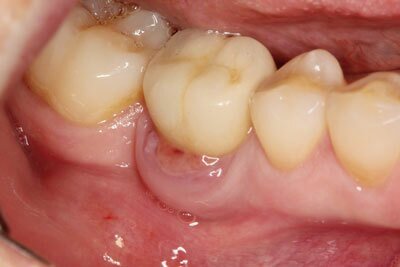+919790726189

This is your website preview.
Currently it only shows your basic business info. Start adding relevant business details such as description, images and products or services to gain your customers attention by using Boost 360 android app / iOS App / web portal.
DENTAL IMPLANTS AT WEST MAMBALAM ASHOK NAGAR CH...

DENTAL IMPLANTS AT WEST MAMBALAM ASHOK NAGAR CHENNAI Peri-Implantitis: Causes, Symptoms, and Treatment Dental implants have revolutionized tooth replacement, providing a durable and aesthetic alternative to traditional dentures or bridges. However, like natural teeth, implants require proper care to prevent complications. One such serious issue is peri-implantitis, an inflammatory condition that affects the soft and hard tissues around dental implants. Left untreated, it can lead to implant failure. What Is Peri-Implantitis? Peri-implantitis is a progressive bacterial infection around a dental implant, characterized by inflammation in the surrounding gum tissue and bone loss. It is similar to periodontitis in natural teeth but can be more aggressive due to the absence of a periodontal ligament. The condition starts with peri-implant mucositis, which involves inflammation limited to the soft tissue but can progress to peri-implantitis if untreated, leading to bone destruction. Causes of Peri-Implantitis Several factors contribute to the development of peri-implantitis, including: Poor Oral Hygiene – Plaque accumulation around implants can harbor harmful bacteria, leading to infection and inflammation. History of Periodontal Disease – Patients with a history of gum disease are at a higher risk of developing peri-implantitis. Improper Implant Placement – Incorrect angulation or excessive force on the implant can create stress on surrounding tissues, increasing the risk of inflammation. Smoking and Tobacco Use – Smoking reduces blood flow to the gums, impairs healing, and increases susceptibility to infections. Uncontrolled Diabetes – High blood sugar levels can impair the immune system, making it harder to fight off infections. Cement Residue from Crown Placement – Leftover dental cement from implant-supported crowns can irritate surrounding tissues and cause bacterial buildup. Symptoms of Peri-Implantitis The early stages of peri-implantitis can be subtle, but symptoms may include: Swelling and redness of gums around the implant Bleeding when brushing or probing the implant area Pus formation, indicating infection Pain or discomfort around the implant Receding gums, exposing more of the implant structure Loosening of the implant due to bone loss Treatment and Management Early intervention is crucial to prevent implant failure. Treatment options include: Non-Surgical Cleaning – Professional deep cleaning with special instruments can remove bacterial deposits. Antibiotic Therapy – Local or systemic antibiotics help control the infection. Laser Therapy – Used to disinfect the implant surface and surrounding tissues. Surgical Intervention – In severe cases, gum surgery or bone grafting may be needed to restore lost bone and stabilize the implant. Prevention Tips To prevent peri-implantitis, follow these guidelines: Maintain excellent oral hygiene with regular brushing and flossing. Schedule routine dental check-ups for professional cleaning. Quit smoking and manage systemic conditions like diabetes. Avoid excessive force on implants by using night guards if needed. Peri-implantitis is a serious but preventable condition. By prioritizing oral care and regular dental visits, you can ensure the longevity of your dental implants. Dental Clinics in West Mambalam Dentists in West Mambalam Dentists in Ashok Nagar Best dentist near me Best Dental Clinics in West Mambalam Oral surgeon in West Mambalam Dental Implants in West Mambalam Oral surgeon in Ashok Nagar Painless tooth removal at West Mambalam

